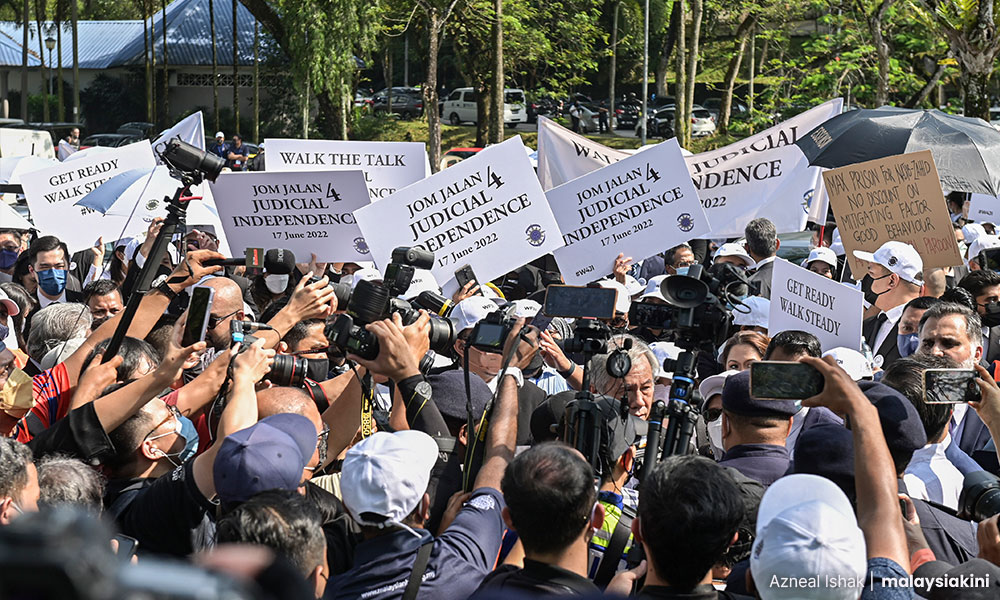Najib Abdul Razak will file in court a counter-reply to the prosecution’s assertion that judge Mohd Nazlan Mohd Ghazali’s previous bank job had nothing to do with the ex-premier’s RM42 million SRC International corruption case.
Deputy public prosecutor (DPP) Mohd Ashrof Adrin Kamarul confirmed that the Federal Court this afternoon gave directions for Najib’s legal team to file the affidavit in reply by July 14.
The prosecutor earlier today was attending the apex court case management of Najib’s application to nullify his conviction in the SRC graft case.
The former finance minister sought the nullification due to an alleged conflict of interest in having Nazlan as the trial judge. Nazlan has since been elevated to the Court of Appeal.
Judge’s previous job ‘irrelevant’
Yesterday, the prosecution filed an affidavit in objection against Najib’s application, contending that Nazlan’s previous role as general counsel with Maybank has no relevance to the case of the RM42 million of SRC funds that allegedly went into the ex-premier’s account.
Ashrof explained that the court also directed the prosecution to file any further reply by July 21 and any additional reply by Najib by July 28.
“The case is fixed for next case management on July 29 at 3pm,” Ashrof said.
Besides Ashrof, DPP V Sithambaram also represented the prosecution. Defence counsel Muhammad Shafee Abdullah acted for Najib.
The Federal Court has set 10 days in August to hear Najib’s final SRC appeal to quash his guilty verdict over seven charges of abuse of power, criminal breach of trust and money laundering as well as a sentence of 12 years in jail and RM210 million fine.
On July 28, 2020, then High Court judge Nazlan had convicted Najib on one count of abuse of position as the then premier, three counts of criminal breach of trust and three counts of money laundering involving RM42 million of funds from SRC.
The judge then sentenced the accused to 12 years in jail and RM210 million fine.
However, the lower court allowed Najib’s application for a stay of execution of the sentences pending disposal of the appeal.
On Dec 8 last year, the Court of Appeal dismissed Najib’s appeal to overturn the lower court’s decision. - Mkini




